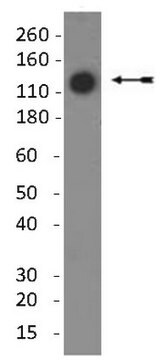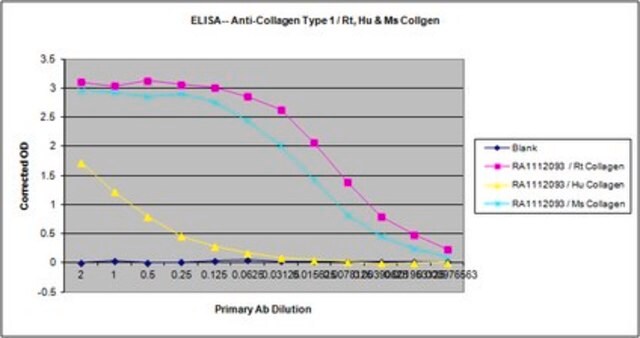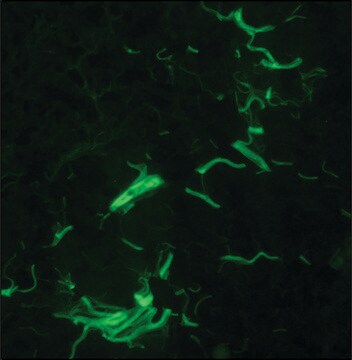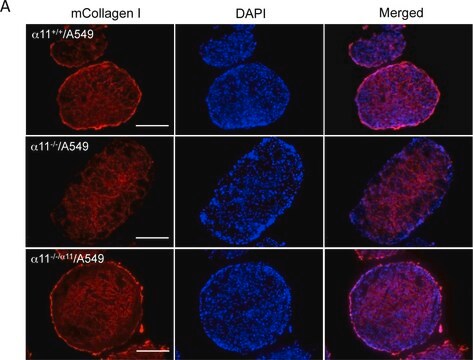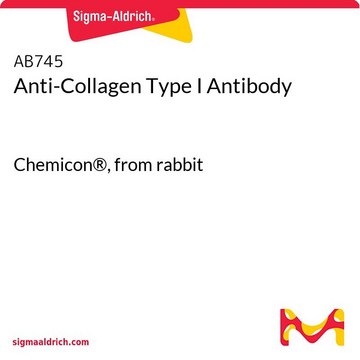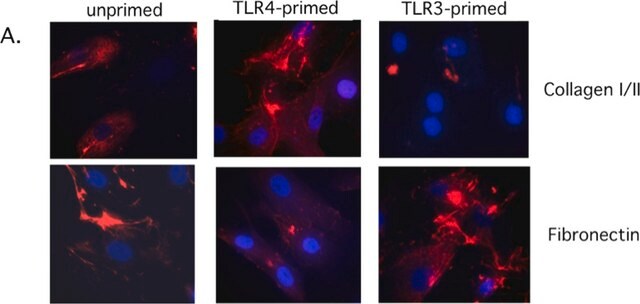MAB1334
Anti-Collagen Types I, II & III Antibody, clone MMCHABC
clone MMCHABC, Chemicon®, from mouse
Synonyme(s) :
Interstitial Collagens
About This Item
Produits recommandés
Source biologique
mouse
Niveau de qualité
Forme d'anticorps
purified antibody
Type de produit anticorps
primary antibodies
Clone
MMCHABC, monoclonal
Espèces réactives
human
Fabricant/nom de marque
Chemicon®
Technique(s)
ELISA: suitable
immunohistochemistry: suitable
radioimmunoassay: suitable
Isotype
IgM
Adéquation
not suitable for Western blot
Numéro d'accès NCBI
Conditions d'expédition
dry ice
Modification post-traductionnelle de la cible
unmodified
Informations sur le gène
human ... COL1A1(1277)
Spécificité
Immunogène
Application
Immunohistochemistry: cryostat sections fixed with acetone or ethanol. Staining pattern similar to polyclonal antibody to interstitial collagens. Formaldehyde fixation is not recommended.
Not suitable for use on paraffin embedded sections or immunoblots.
Optimal working dilution must be determined by the end user.
Cell Structure
ECM Proteins
Forme physique
Stockage et stabilité
Informations légales
Clause de non-responsabilité
Vous ne trouvez pas le bon produit ?
Essayez notre Outil de sélection de produits.
Mention d'avertissement
Danger
Mentions de danger
Conseils de prudence
Classification des risques
Eye Irrit. 2 - Repr. 1B - Skin Irrit. 2
Code de la classe de stockage
6.1C - Combustible acute toxic Cat.3 / toxic compounds or compounds which causing chronic effects
Classe de danger pour l'eau (WGK)
WGK 2
Certificats d'analyse (COA)
Recherchez un Certificats d'analyse (COA) en saisissant le numéro de lot du produit. Les numéros de lot figurent sur l'étiquette du produit après les mots "Lot" ou "Batch".
Déjà en possession de ce produit ?
Retrouvez la documentation relative aux produits que vous avez récemment achetés dans la Bibliothèque de documents.
Notre équipe de scientifiques dispose d'une expérience dans tous les secteurs de la recherche, notamment en sciences de la vie, science des matériaux, synthèse chimique, chromatographie, analyse et dans de nombreux autres domaines..
Contacter notre Service technique
